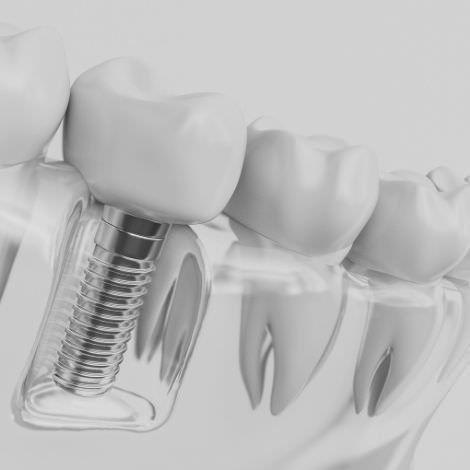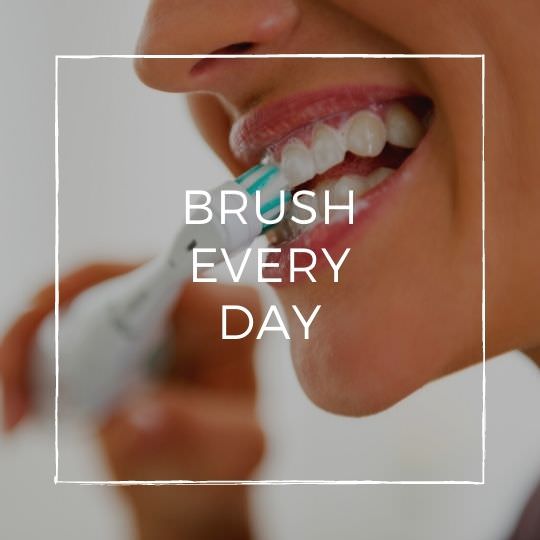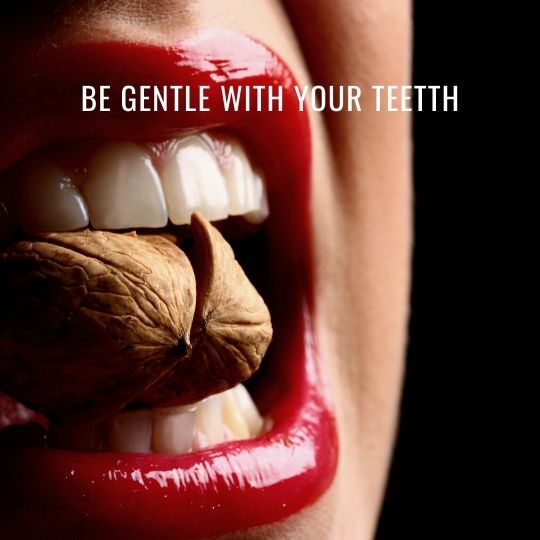Posted on Monday, April 5th, 2021 | 3,066 views
Maintaining the health of your dental implants is easy if you follow these simple and time saving maintenance tips.
Its widely known that dental implants have changed the lives of many by replacing lost teeth in a manner that is permanent, durable and nearly identical to natural teeth. With implants, you are able to regain your beautiful smile but like natural teeth, it’s important to properly care for them. You need to ensure they stay healthy and strong for the rest of your life.
 Here are the easiest ways to keep your dental implants in optimal condition.
Here are the easiest ways to keep your dental implants in optimal condition.
Key points in this article
The following tips will help you keep your dental implants in optimal condition:
- How Long Does It Take To Do Dental Implants?
- Keep Up a Regular Brushing Schedule
- Use the Right Brushing Technique and Tools
- Floss At Least Once a Day
- See Your Dentist for Regular Checkups
- Don’t Be Reckless with Your Teeth
- Avoid Sugar
- Avoid Foods and Beverages That Cause Staining
- Reduce or Avoid Alcohol and Tobacco
- Use a Mouth Guard
How Long Does It Take To Do Dental Implants?
The length of time it takes to do dental implants depends on a number of factors including the number of implants that need to be placed and whether the bone needs to be rebuilt. The typical time it takes to replace an implant is approximately one hour per implant.
Dr. Pio Modi explains the procedure in more details in the following video:
Keep Up a Regular Brushing Schedule
This may seem obvious to most people since basic dental care starts with brushing, but it’s not uncommon for people to skimp on their brushing habits when they get dental implants. While it is true that dental implants do not develop cavities and don’t suffer from decay, your gums and jaw-bone can still be negatively impacted by plaque. Buildup of tartar on implants can create stains and change the texture of the material too.
Additionally, neglecting to properly brush your teeth will leave your natural teeth at a higher risk of decay. Damage to the surrounding teeth and gums can negatively affect the integrity of your implants.
In severe cases, damage to your gums surrounding the implant could cause it to loosen and require extensive dental work to repair. Brushing thoroughly twice a day will keep your implants, gums and bone strong and healthy.
Use the Right Brushing Technique and Tools
 With implants you should brush at least twice a day with a soft-bristled toothbrush and fluoride toothpaste. Using a medium or hard-bristled toothbrush will damage the surface of the implant. You should also use a interdental toothbrush to help clean the difficult areas around and under your implant.
With implants you should brush at least twice a day with a soft-bristled toothbrush and fluoride toothpaste. Using a medium or hard-bristled toothbrush will damage the surface of the implant. You should also use a interdental toothbrush to help clean the difficult areas around and under your implant.
Some dentists recommend using an electric toothbrush for better cleaning, but most studies have found that there is no significant difference between using an electric or manual toothbrush as long as you use proper brushing techniques.
There are actually several effective techniques specifically for brushing dental implants. The best technique usually depends on the type of tooth and your own preferences. Ask your dentist which brushing techniques you should use based on your particular implants.
Floss At Least Once a Day
Flossing is very important when you have dental implants. Your implants rely on having strong and healthy gums to support the screws that act as the artificial roots for the dental implant (also known as the fixture). Flossing at least once a day prevents the buildup of plaque between teeth and helps prevent gum disease, which is one of the main causes of dental implant failure.
It’s also a great idea to use an oral irrigator in conjunction with flossing to clean your gums and between your teeth as thoroughly as possible. Keep in mind that you should not only use an oral irrigator to clean your teeth because they don’t tend to clean out the films of bacteria that develop between teeth like floss does.
See Your Dentist for Regular Checkups
No matter how good your brushing and flossing habits are, you can’t truly match the deep cleaning capabilities of a dental hygienist. Getting a cleaning and checkup twice a year will allow you to keep your natural teeth and implants as clean and healthy as possible.
Your dentist will also catch potential problems with your implants early and fix them before the issue becomes painful or too expensive to rectify.
Don’t Be Reckless with Your Teeth
 While the primary use of teeth is to grind down food for consumption, they also commonly get used and abused for other purposes.
While the primary use of teeth is to grind down food for consumption, they also commonly get used and abused for other purposes.
For example, some people use their teeth to open packaging, bite their nails or even open bottles. Many people also have oral fixations such as chewing on pen caps, gnawing on pencils or eating ice.
These habits can damage implants or even cause them to shift in your mouth. It’s difficult to break bad habits, but it’s vital to stop these harmful behaviours to protect the structures of your implants.
Also, avoid hard food: don’t chew ice cubes, don’t crunch down on hard candy, and avoid hard-shelled nuts. Foods of this nature can damage your regular teeth and your implants.
Avoid Sugar
One of the most effective methods of controlling plaque buildup is by stopping it at the source—sugar. Harmful plaque develops when sugar is left on your teeth. The bacteria in your mouth (Streptococcus mutans and Streptococcus sorbrinus) love to consume the leftover sugar. As a result of the bacteria’s reaction to the sugar, a film of plaque (called biofilm) develops on the tooth.
Cutting down on sugary foods and beverages as much as possible, slows down the development of plaque and helps prevent gum disease.
Avoid Foods and Beverages That Cause Staining
Some people don’t think much of consuming foods and beverages that cause staining on their teeth because there are so many options for whitening teeth available to the public today. The options are endless. You can use whitening toothpaste, gel, strips or even professional whitening procedures by your dentist. However, you don’t have those options with dental implants.
Dental implants are usually made out of acrylic, and acrylic doesn’t have the same reaction to whitening methods as enamel does. In fact, using some forms of teeth whitening may actually have an adverse effect on your implants. Some whitening toothpastes use abrasive methods that scratch the surface of the enamel in order to remove stains and reveal the brighter enamel underneath.
Also, if you whiten your natural teeth after you develop a lot of stains or discolouration, your implant’s colour may not match the colour of your newly whitened teeth. Depending on the substance your crown was made of, the only way to make it look uniform would be to replace the crown.
It’s best to avoid the issue of whitening and crown replacement entirely by cutting out foods and beverages that cause staining such as coffee, wine, tea, fruit juice, berries, candy, chocolate, soda and beets.
Reduce or Avoid Alcohol and Tobacco
Your dentist will most likely advise you to not use alcohol or tobacco for at least a few weeks after the implanting procedure, but it is best to reduce or avoid usage entirely in order to keep your implants and your natural teeth healthy.
Alcohol dehydrates your body, negatively affects osseointegration (the process that fuses the jawbone to the implant to create stability) and causes more pain in the wound site by dilating the vessels and capillaries in the gums.
Tobacco products have an even worse effect on healing and oral health. Smoking and especially chewing tobacco cause horrible stains to natural teeth and implants. Tobacco blocks the salivary glands and increases the risks of infection, tooth decay, gum disease and bone loss. In severe circumstances, tobacco can even permanently damage your salivary glands.
Smoking burns the tissues in your mouth, severely impeding the initial healing process of the implant and creating a very harmful situation in your mouth where it is constantly trying to recover from the various burns while also suffering from a diminished healing capability. To make matters even worse, tobacco is also known for causing bone loss in the jaw, which can have a devastating impact on the fixture of your implants.
Use a Mouth Guard
This step is not necessary for everyone with dental implants, but it really helps anyone who grinds their teeth or frequently participates in contact sports. A mouth guard will protect your implants from damage in cases of grinding or impacts during sports, and it will block out pool water for swimmers. Pool water typically has a high pH, which breaks down valuable proteins in your teeth and causes swimmer’s calculus. This condition creates discolouration and increases your chances of gum disease.
The Take Home
Keeping your implants as healthy as possible and in optimal condition is not hard. It just takes a little bit of perseverance, and dedication. If you find that you cannot always follow the advice listed above, do yourself a favour and make sure you brush and floss every day. That alone will definitely ensure they’re in good working order at least until your next checkup or cleaning.
Read More...
About Dr. Pio Modi
After Dr. Modi graduated from McMaster University with an Honours B.Sc. in chemistry in 1997, he received his Doctorate of Dental Surgery from the University of Toronto in 2001. He began to practice dentistry in Brantford the following year. Throughout his career he's completed hundreds of hours of continuing education programs and has studied with some of the best educators in the industry.
Leave a Reply